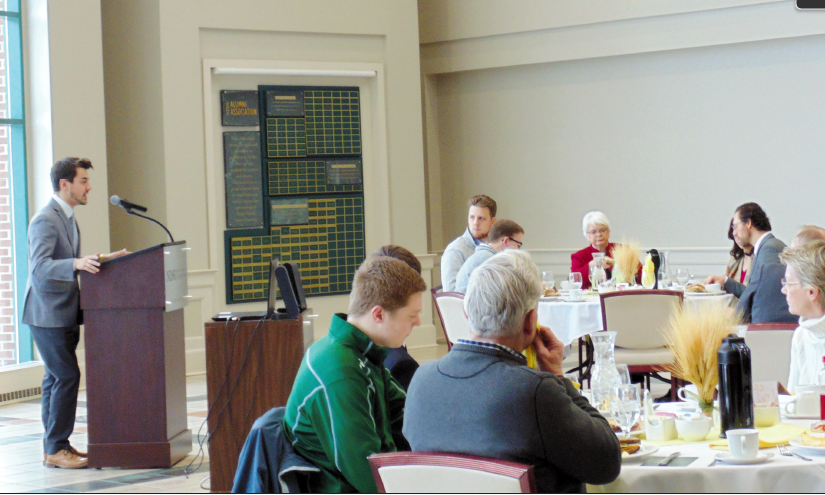Higher education day began with Mason Wenzel, student body president, and Katie Mastel, student body vice president, addressing some updates about North Dakota State.
One of student government initiatives made known were the integration of online courses into tuition, going into effect fall 2018. Wenzel expressed that this is a cost effective and transparent way of making online courses more available to students.
Wenzel also highlighted some education enrichment options that will soon be made available, like practice exams for graduate school and cost effective studying options. Additionally, Microsoft Office certifications are being offered free of charge to prepare people for the workforce. He also expressed his excitement of completing one of his goals of cost-free textbooks available in some classes.
Mastel then brought up some monetary points, such as grants received and money saved.
Then a virtual campus tour highlighted buildings across campus of NDSU pride, such as Churchill Hall after its renovation, Catherine Carter Hall, which is currently being built, A. Glenn Hill Center and Dunbar hall. Dunbar Hall was the outcast here, as the university is aware of its deteriorating condition and hopes to renovate and improve the building in the future.
Mark Hagerott, the Chancellor of North Dakota University Systems, spoke about some summer programs for students in Wahpeton and the Department of Homeland Security working with NDUS to defend campuses.
Gov. Burgum then took the stage. He expressed faith in the NDUS to reach its highest potential, but advised that it may be harder than anticipated. “Competition is going to change the face of higher education,” Burgum said.
The governor instructed senators and student governors that attended the event, that they must understand the economics of higher education to make it a worthwhile investment for universities and students.
Burgum spoke at length about business decisions, like using online classes to make schedules affordable and flexible, or what it means to allow high school students to take up to a year of college courses for free.
He also spoke about doing more to make individual universities reliable for students and faculty alike, and that flexibility would lead to success, to embrace technology.
Before his closing remark Burgum stated, “We do not believe North Dakota can reach its highest potential unless we have an absolutely outstanding system of higher education.”
